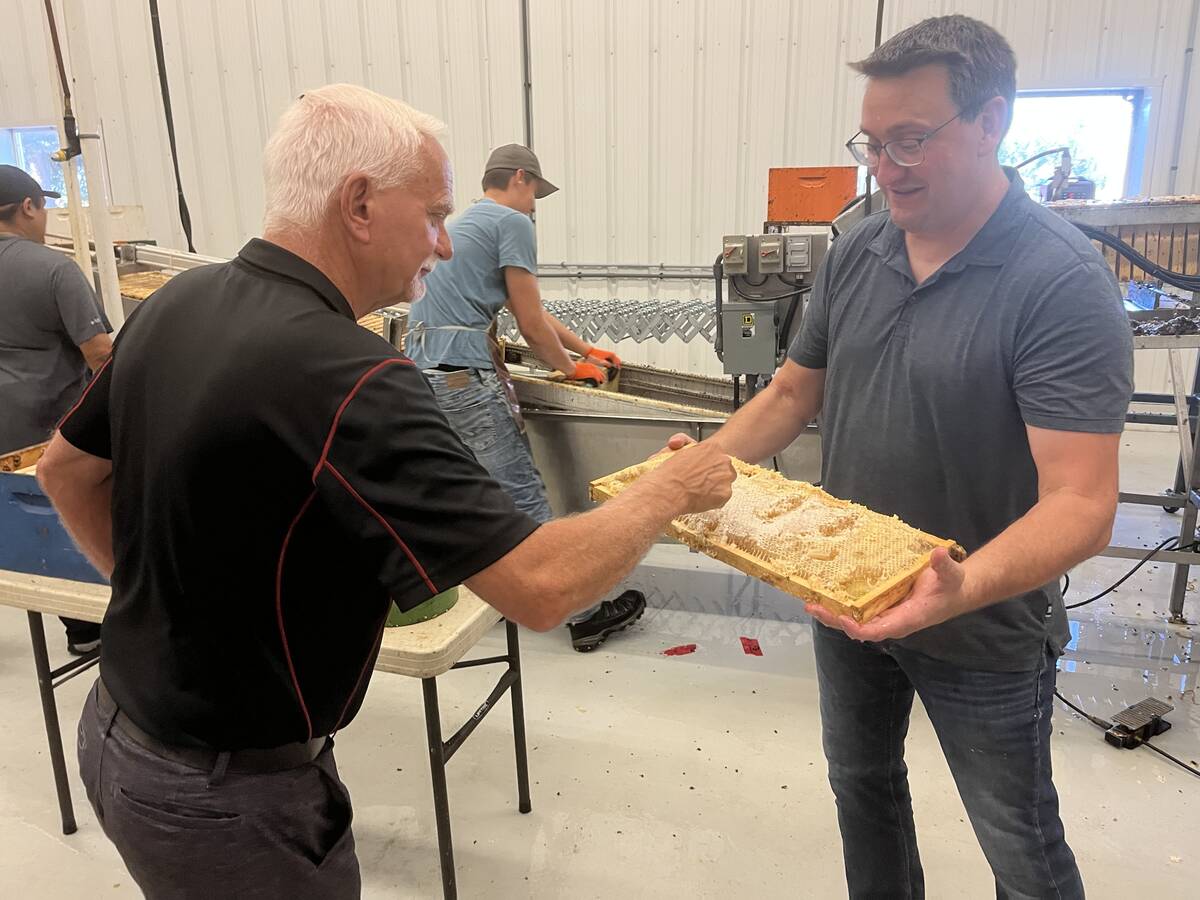Q: My husband and I had our wills drawn up about 10 years ago. The wills are still fine today, except that we would like to change one clause. Can we simply cross out the clause with a black marking pen and initial it in front of a witness? We don’t want to have the wills redrawn, because we are trying to avoid the cost.
A: Ideally, it is wise to consult a lawyer when contemplating a change to one’s will. It is true there is a cost to revising a will, but a mistake in the document could invalidate the will or change its nature. The money saved may end up causing nothing but grief for the people you are trying to benefit.
Read Also

Alberta honey business ‘thrives’ despite bumpy beginnings
Thrive Honey showcases its honey production in market where Alberta produces 40 per cent of all honey produced in the country
Recently, I wrote about a case where the will left land to specific individuals. However, the maker of the will had no land. All he had were shares in a farming company, which owned the land. The people he was trying to benefit were defeated.
This doesn’t mean that a court might not recognize a will that has been altered when it is presented for probate. A Saskatchewan case, the Lang estate, illustrates. After making a will, Mr. Lang changed the executor and two of the residual beneficiaries (those who claim against what is left after specific gifts have been made.) He made the changes in his handwriting and either signed or initialed them. The question was were those changes valid?
Saskatchewan’s legislation provides that obliterations, cancellations by drawing lines, and alterations are not valid unless the testator’s signature and that of the witnesses appears near the change.
However, in 1989 changes were introduced to the wills legislation to allow some judicial discretion in determining whether a will is valid.
“The court may, notwithstanding that the document or writing was not executed in compliance with all the formal requirements imposed by this act, order that the document or writing … be fully effective.”
So in this case the court found the changes valid. However, it took a court hearing with three lawyers to confirm its validity and cost a lot more than it would have to rewrite the will.
The provision allowing judicial discretion in interpreting what is a will does not apply in every province. So in that case, there would have to be strict compliance Ð all changes would have to be signed and witnessed.
Even if there is discretion in law, the people putting forward the
will would have to prove that the deceased made the alterations and that they truly reflected his
intentions.
The Jackson estate case in Nova Scotia illustrates. The deceased’s will had many alterations, some of which were signed and witnessed, others not. The court had to go through the various changes, decide who made the notations, whether they reflected the will of the testator, and whether they had the effect of revoking the will. After going through the various alterations, the court found that the will was valid, as were some of the alterations, but rejected other alterations because they were either made by people trying to assist the deceased in his last days or were not proved to be made by the deceased.
Legalities involved
Q: I am trying to determine what constitutes a legal will. Must the signature on the will be witnessed and the witness’s signature witnessed? I was always under the impression that it is a legal will if people sign it in their own signature.
A: A will must be signed or marked by the deceased and witnessed by two people who must see the deceased signed the will. As part of the probate process, the witnesses, or at least one of them, will have to sign a sworn statement that they saw the deceased sign the will in their presence and that of the other witness.
As a general rule, a person cannot benefit under a will and be a witness. In some provinces a beneficiary who is also a witness can go to court for an order declaring that he did not unduly influence the testator and therefore should be able to receive benefits under the will.
Holograph wills, entirely in the deceased’s handwriting and signed by her, are recognized as valid in some provinces. All three prairie provinces recognize such wills.
Again, as with any will, one must be aware of what assets one has, what one’s wishes are and how to accomplish them. Mistakes are impossible to correct after a person’s death.
















